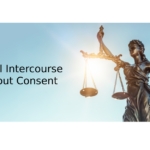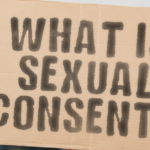The Offence of Aggravated Sexual Intercourse in Company in New South Wales

Three men who were found guilty of sexually assaulting three women during a Bucks weekend in Newcastle are awaiting their penalties after sentencing submissions were made before the New South Wales District Court.
The men – 30-year olds Andrew David and Maurice Hawell, and 23 year-old Marius Hawell – were found guilty of a string of sexual offences including aggravated sexual assault in company and aggravated sexual touching, in July of this year and face maximum penalties of life in prison.
The jury heard that the trio were staying at an Airbnb apartment over two nights in February of this year for groom-to-be Maurice Hawell’s Bucks celebrations when they assaulted two 18-year old women on the Friday night and a 19-year old the next night.
The men defended the allegation on ground each of the women consented to the sexual activity.
But the jury found otherwise, accepting the prosecution submission the trio were each guilty of one another’s crimes on the basis they were participating in a ‘joint criminal enterprise’.
During sentencing proceedings on 17 February 2024, the court heard victim impact statements from two of the women, the first of whom said she has been suffering from panic attacks since the incident and been unable to leave home. The woman said she blamed herself for “allowing it to happen” and began to think “life was so unfair and cruel”.
The second woman said she has been suffering flashbacks, and has been unable to trust any man around me … it is unfair I have to regain my trust in people.”
The three men maintain their innocence despite the verdicts. They have a right to appeal to the New South Wales Court of Criminal Appeal after their sentences are handed-down.
The Offence of Aggravated Sexual Assault in Company in New South Wales
The Crimes Amendment (Aggravated Sexual Assault in Company) Bill 2001 (NSW) was a response to mainstream media-fuelled concerns that ‘gang rape’ was not sufficiently covered by existing laws.
The Bill was passed through both Houses of the New South Wales Parliament and saw the insertion of section 61JA into the Crimes Act 1900 (NSW) – the offence of aggravated sexual intercourse in company which carries a maximum penalty of life in prison.
To establish the offence, the prosecution must prove beyond reasonable doubt that the defendant:
- Had sexual intercourse with another person,
- Did not have the other person’s consent to the sexual intercourse,
- Knew the other person did not consent, or was reckless as to whether he or she consented, or had no reasonable grounds to believe he or she consented,
- Was in the company of at least one other person, and
- Intentionally or recklessly inflicted actual bodily harm, or threatened to inflict actual bodily harm by use of an offensive weapon or instrument, or deprived the other person of his or her liberty.
The Definition of Sexual Intercourse
For the purposes of the offence, sexual intercourse is defined as:
- Penetration to any extent of a female’s genitalia, or the anus of any person, by any part of, or object used by, another person,
- Introduction of a penis into the mouth of another person,
- Cunnilingus, or
- Continuation of any of the mentioned acts.
The Issue of Consent
The Crimes Legislation Amendment (Sexual Consent Reforms) Act 2021 came into effect on 1 June 2022 (NSW), inserting new definitions of sexual consent into the Crimes Act 1900 (NSW), including requirements that participants obtain affirmative consent to sexual activity.
The new section 61HI(1) sets out that a person consents to sexual activity if he or she “freely and voluntarily agrees” to the activity.
The subsections that follow attempt to put that broad and potentially ambiguous definition into some practical context, making clear that:
2. Consent can be withdrawn by words or conduct at any time,
3. Sexual activity that occurs after the withdrawal of consent is deemed to be without consent,
4. Consent is not established merely because a person does not offer physical or verbal resistance,
5. Consent to one form of sexual activity is not taken as amounting to consent to another. In that regard, the Act expressly states that consent sexual activity with a condom does not amount to consent to such activity without one, and
6. Consent to sexual activity on one occasion is not taken as amounting to consent on another.
Circumstances where consent cannot exist
Section 61HJ(1) makes clear that sexual consent does not exist if a person:
1. Does not say or do anything to communicate consent (which is sometimes referred as the requirement to obtain affirmative consent),
2. Does not have the capacity to consent (due, for example, to a cognitive impairment that requires supervision or social habilitation in connection with daily life activities),
3. Is so affected by alcohol or another drug/s as to be incapable of consenting,
4. Is unconscious or asleep,
5. Participates because of force, fear of force or harm of any kind to him or her, another person, an animal or property, regardless of whether the feared force or conduct actually occurred, or was a single act or an ongoing pattern of conduct,
6. Participates because of coercion, blackmail or intimidation regardless of when it occurred or whether it was a single act or an ongoing pattern of conduct,
7. Participates because he or she, or another person, is unlawfully detained,
8. Participates because he or she is overborne by the abuse of a relationship of authority, trust or dependence,
9. Participates because of a mistaken belief about the nature or purpose of the sexual activity, including whether it is for health, hygienic or cosmetic purposes,
10. Participates because of a mistaken belief about the identity of the other person or that they are married,
11. Participates because of a fraudulent inducement, which is not a misrepresentation about the other person’s income, wealth or feelings.
The section expressly states that these grounds are not exhaustive.
Knowledge about consent
Section 61HK sets out the circumstances where a person is taken to know the person with whom they are engaging in sexual activity does not consent.
Subsection 61HK(1) stipulates that a person is taken to know the other person does not consent to the sexual activity if:
1. The person actually knows the other person does not consent,
2. The person is reckless as to whether the other person does not consent.
In that regard, a person is ‘reckless’ if he or she realised at the time that consent may possibly be absent but went ahead with the sexual activity regardless; or
3. Any belief the person has that the other person consents is not reasonable in the circumstances.
In that regard, subsection 61HK(2) states that sexual activity is not reasonable if the person did not, within a reasonable time before or at the time of it, say or do anything to find out if the other person consents.
Subsection 61HK(3) provides that the requirement of reasonableness does not apply if the defendant shows that he or she had a cognitive impairment or mental health impairment at the time of the conduct, and the impairment was a substantial cause of him or her not saying or doing anything at the time,
Subsection 61HK(4) states that the onus rests on the defendant to prove, on the balance of probabilities, that the belief as to consent was reasonable.
The section forms part of the legal requirement to obtain affirmative consent.
Subsection 61HK(5) states that for the purpose of making a finding regarding consent, the ‘fact finder’ (in other words, the jury in a jury trial, the judge in a judge-alone trial or the magistrate in a Local Court hearing):
1. Must consider all of the circumstances of the case including what, if anything, the defendant said or did, but
2. Must not consider any self-induced intoxication of the defendant.
Legal Defences to Aggravated Sexual Assault in Company
In addition to having to prove each essential element of the offence of aggravated sexual assault in company, the prosecution must also disprove to the same high standard any legal defence raised on the evidence.
These legal defences include duress, necessity and self-defence.
The defendant is entitled to an acquittal if the prosecution is unable to disprove a validly raised legal defence.
Accused of a Sexual Offence?
If you or a loved-one have been accused of a sexual offence, call Sydney Criminal Lawyers anytime on (02) 9261 8881 for expert legal advice and formidable representation from a legal defence team with a long and proven track record of consistently having allegations of a sexual nature withdrawn or dismissed in court.







